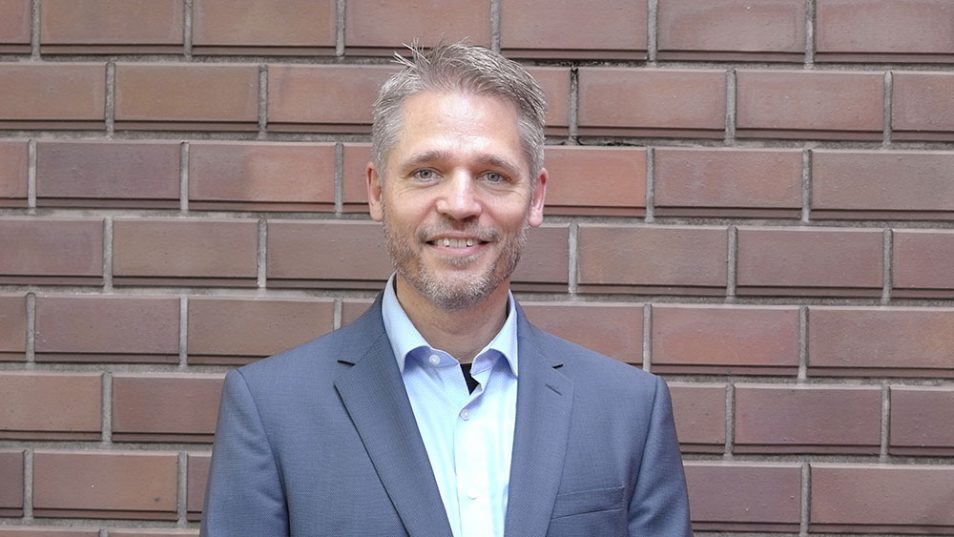“It's worthwhile combining German and Japanese research efforts”
 © DAAD Tokyo/Axel Karpenstein
© DAAD Tokyo/Axel Karpenstein
In this interview, Axel Karpenstein, the newly appointed Director of the DWIH Tokyo, discusses the significance of networking across diverse subject areas, Japanese interest in Germany, and the advantages of being located in Tokyo.
Mr. Karpenstein, you assumed the position of director of the DWIH Tokyo in August 2022. How has the Centre developed over the past year?
In 2022, we focused on new themes and target groups that will remain important. We recognized the growing significance of diversity and gender equality and organised several events on these issues in 2022, focusing on the femtech sector for the first time. Japan is seeing a boom in start-ups, many of which are developing innovations in the field of female health, so we’re striving to promote more networking in this area. The issue of transfer also gained momentum last year. Japan has long prioritized promoting applied research. The government’s current “Basic Plan for Science, Technology and Innovation” is very much geared towards the benefits of new technologies from the point of view of society. I find it impressive how consistently Japan promotes research and knowledge transfer in tackling major challenges such as climate change based on innovative ideas!
How important was the overarching focus topic “Sustainable Innovations” for DWIH Tokyo?
Our various sustainability-focused events have reinforced the realisation that innovative technologies are crucial to addressing the threat of the climate crisis. Simply relying on regulations and voluntary restrictions would be too slow—rapid alternatives to fossil fuels are essential. Now is the time for these technologies to be put into practice. Japan is at the very forefront of hydrogen technology research worldwide: in 2017, it was the first country to adopt a national hydrogen strategy.
Which areas besides renewable energies are currently of particular interest to innovation drivers in Japan?
Japan is a world leader in robotics and materials science, making these areas of particular interest for German partners to collaborate on. In the field of Artificial Intelligence (AI), the two countries are on a par and complement each other very well. Here there’s a large value-added in pooling research efforts so as to advance together and do more to catch up with the US and China. When it comes to AI, it’s especially relevant to explore how rapid technological progress can be combined with social well-being. Incidentally, the importance of AI and renewable energies in German-Japanese cooperation is also reflected by our gaining of two new supporters in 2022: the German Research Center for Artificial Intelligence (DFKI), which has opened a branch office in Osaka, and the Energy Research Centre of Lower Saxony (EFZN). Japan is of interest to innovation drivers in other areas too, of course. The country ranks 5th in the Nature Index, which measures the research output of institutions and countries. For about twenty years now, Japan has spent some three per cent of its gross domestic product on research and development.
How will you look to advance networking between German and Japanese researchers in 2023?
We’re currently working on making the German research scene even better known in Japan. We already share information about funding opportunities and ongoing research projects in Germany on our website, in our newsletter and on social media. In addition to this, we’ll seek to provide early-career Japanese researchers with specific information about university structures and programmes and draw their attention to funding opportunities in Germany. At the end of April 2023, we organised a virtual German Research Fair in collaboration with research organisations and German universities from our network – and more than 400 interested students and researchers from Japan signed up!
To what extent do you fundamentally benefit from your location in Tokyo?
Being located in Tokyo is a tremendous advantage. During the pandemic, we were able to receive visitors from Japanese academia and industry who were looking for German research partners since Japan didn’t have any lockdowns. People in Japan are generally very familiar with and interested in Germany and Europe. But in Germany, too, there is growing interest in scientific collaboration with Japan. We’re observing more and more university partnerships, and I’m pleased to say that the number of applications for research stays in Japan is on the increase, too.
Interview: Miriam Hoffmeyer
